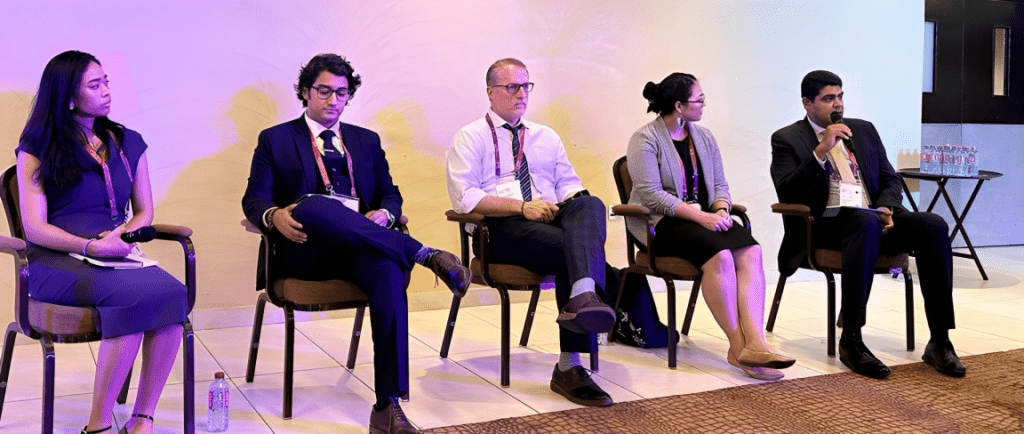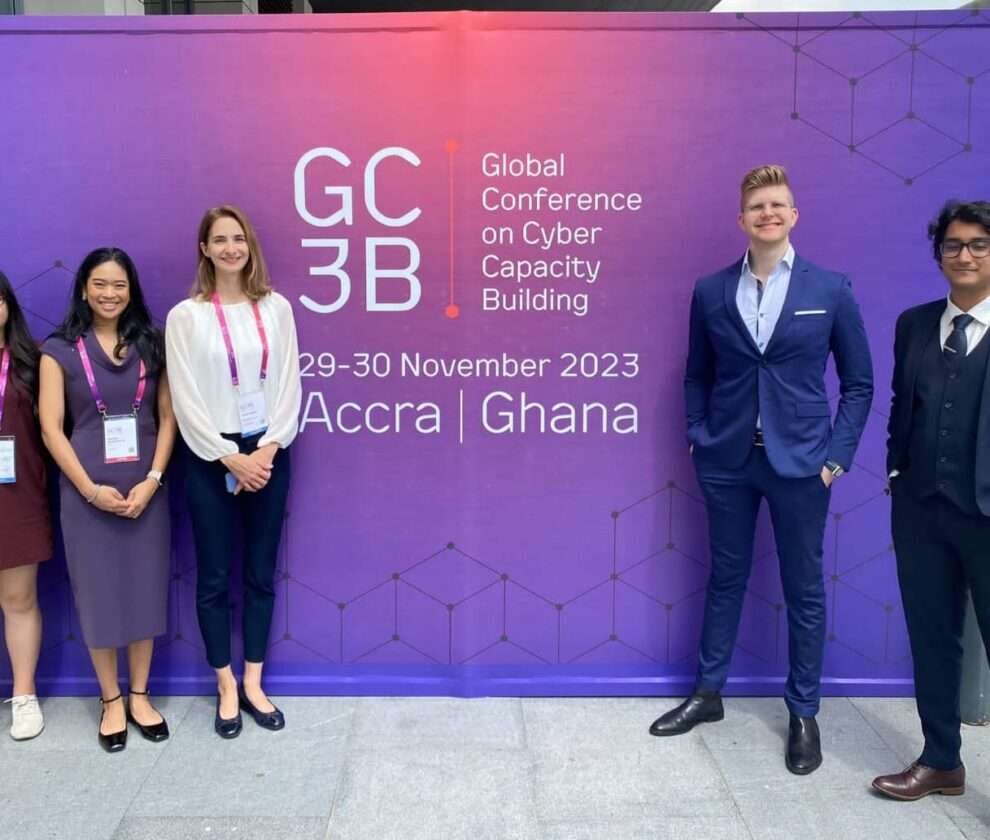The recent Global Conference on Cyber Capacity Building (GC3B) in Accra, Ghana, brought together global leaders and experts to explore how cyber resilience can fuel sustainable development. Mr. Adnan Rahman, Portfolio Lead at Inspira, represented Bangladesh and provided valuable insights on fostering a robust worldwide cybersecurity culture for the development of next generation.
The conference was co-organized by the Global Forum on Cyber Expertise, The World bank, The World Economic Forum and the Cyber Peace Institute and is hosted by the Ministry of Communications and Digitalisation of Ghana and the Cyber Security Authority of Ghana. Recognizing the key role that cyber resilience and capacity building can play in enabling and supporting the UN 2030 Agenda for Sustainable Development, the theme of the GC3B 2023 is “Cyber Resilience for Development.”
“Global leaders and experts from the cyber and development communities are gathering to attend sessions centered around four pillars: making international development cyber resilient, collaborating to secure the digital ecosystem, cyber capacity building for stability and security, and operationalizing solutions. Adnan Rahman was invited as a discussant under Pillar 4 to join the panel focusing on ‘Thinking out of the box to inspire a new generation of cybersecurity talent.’
During the panel, Adnan presented a refreshingly simple yet profound framework for understanding cybersecurity culture: the ABC model. “Awareness is A,” he explained, “where you know a piece of information, any piece of knowledge.” This stage lays the foundation, but true change comes when awareness translates into “Behavior, the B, applying that knowledge.” Finally, “C is Culture, when everyone around you is following what they know.”
He emphasized more saying “Imagine if every internet user starts using multi-factor authentication, it will effectively stop 30-50% of all hacking attempts.” This visualization underscores the depth of the impact a widespread cybersecurity culture could have.
However, bridging the gap between awareness and action requires more than generic campaigns. Adnan stressed the importance of “highly contextualized” approaches. “The messaging that you use has to resonate with your target audience,” he stated, drawing on his marketing background. “Hyperlocalization” becomes crucial, ensuring campaigns speak directly to the concerns and interests of specific communities.

But what if awareness needs a nudge? Adnan proposed two intriguing possibilities: harnessing the influence of digital media and showcasing the diverse realities of cybersecurity careers.
He cited the impact of the movie “Top Gun” on US military recruitment, highlighting the potent influence of media narratives. Similarly, “a lot of young minds get into the idea of ethical hacking” from video games and movies, he observed. This presents an opportunity to channel their natural curiosity towards “vulnerability assessment and penetration testing,” demonstrating the formal and rewarding paths available in cybersecurity.
Furthermore, Adnan pointed to the lack of female representation in cybersecurity, sharing real-time experiences from implementing the cybersecurity campaign in Bangladesh. During the campaign, we aimed to bring more female role models but faced challenges in finding successful cases of women working in the cybersecurity realm. He addressed the significance of diversity, drawing inspiration from Marvel’s impact on inspiring children from diverse backgrounds.”
The Global Conference on Cyber Capacity Building served as a pivotal platform where leaders like Adnan Rahman paved the path toward a robust worldwide cybersecurity culture. Discussing creative framework, coupled with the campaign experience and the exploration of media influence, reflects a multifaceted approach needed to bridge the gap between cybersecurity awareness and action underscoring the transformative potential of a global cybersecurity culture, one that not only safeguards our digital ecosystem but also nurtures diversity and inspires the next generation of cybersecurity talent.




